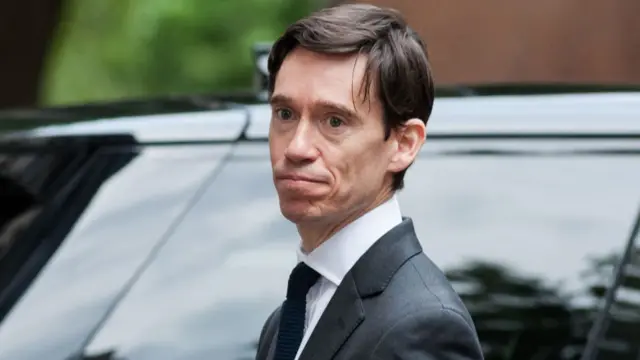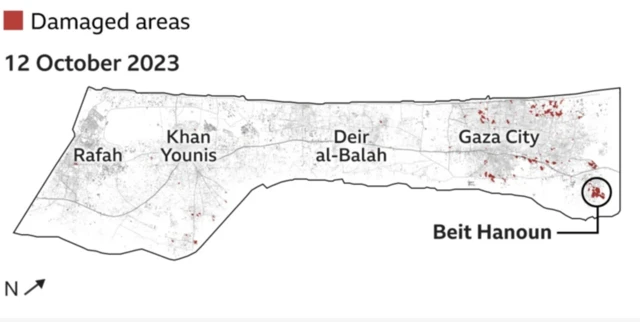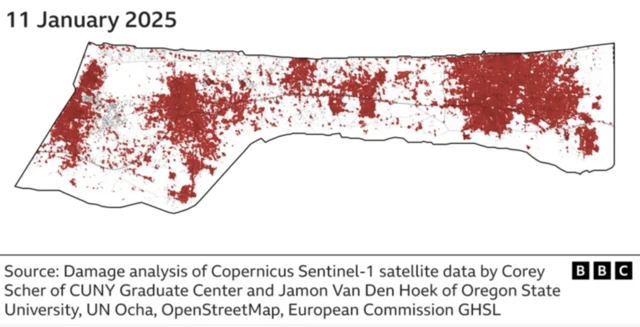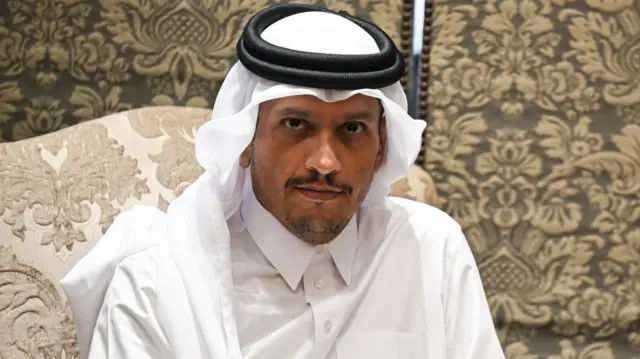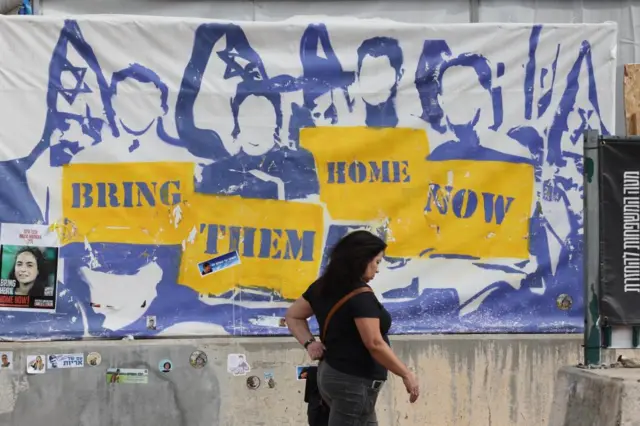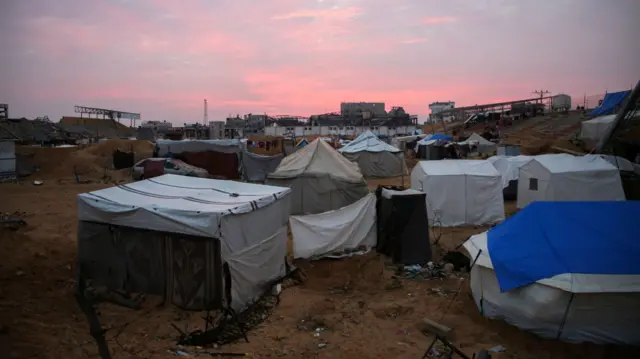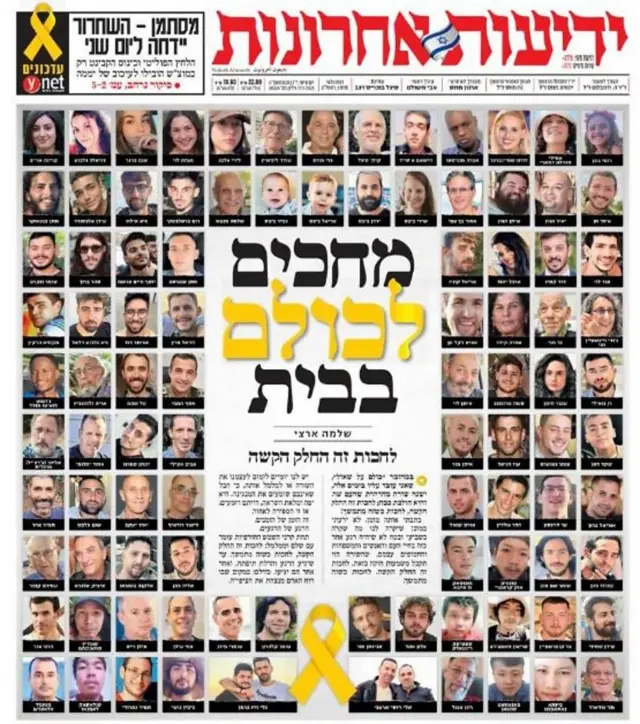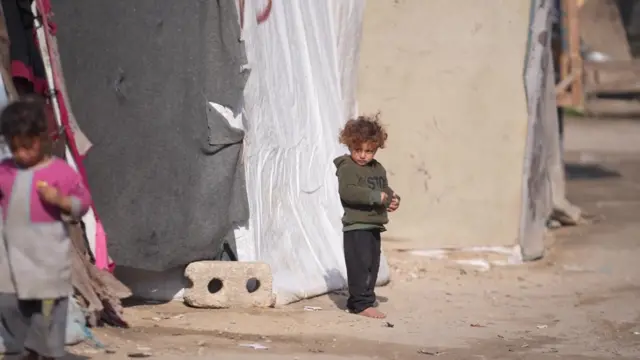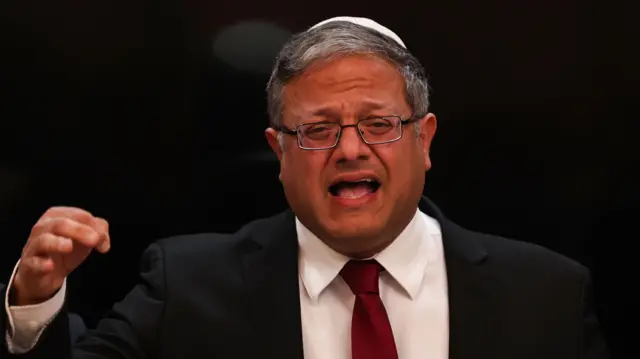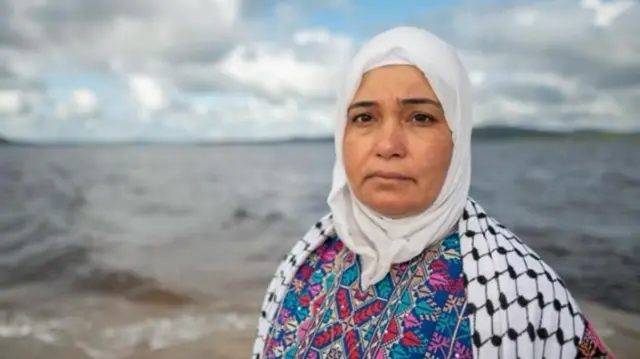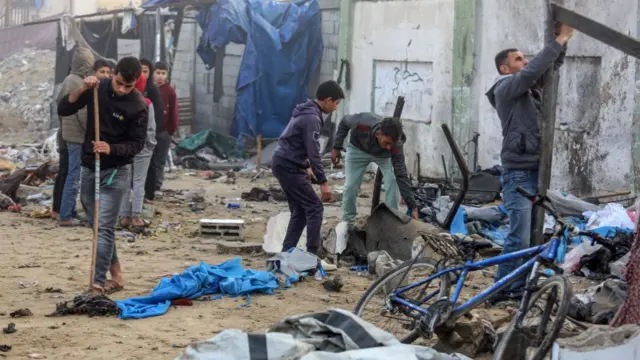Palestinian Authority ready to 'assume full responsibilities' in Gazapublished at 18:33 GMT 17 January
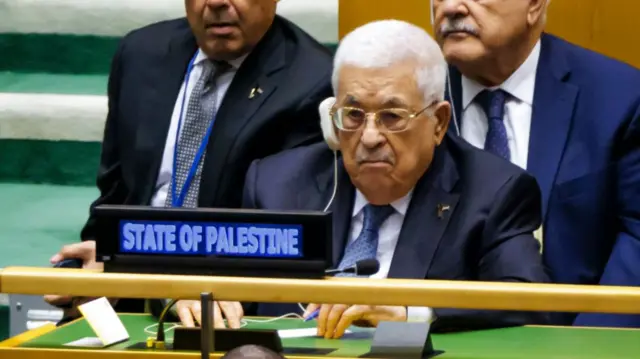 Image source, Getty Images
Image source, Getty ImagesPalestinian Authority President Mahmoud Abbas attends the United Nations General Assembly in September
We're now hearing from the Palestinian Authority (PA), which says it's prepared to "assume full responsibilities" in the Gaza Strip following the ceasefire.
In a statement posted on X, it says: "The Palestinian government has completed all preparations to assume full responsibilities in the Strip and that the government administrative and security personnel were fully prepared to carry out their tasks in order to alleviate the suffering inflicted on the Gaza population, allow displaced persons to return to their homes, restore essential services to the Strip, assume responsibility for the border crossings and help commence Gaza reconstruction."
The PA also urges the international community to offer aid to Gaza, the West Bank and Jerusalem and says there should be an "international peace conference" to recognise the State of Palestine and support its entry to the United Nations.
- For context, the Palestinian Authority is the governing body which has overseen parts of the occupied West Bank since the 1990s and controlled Gaza until the 2006 elections
